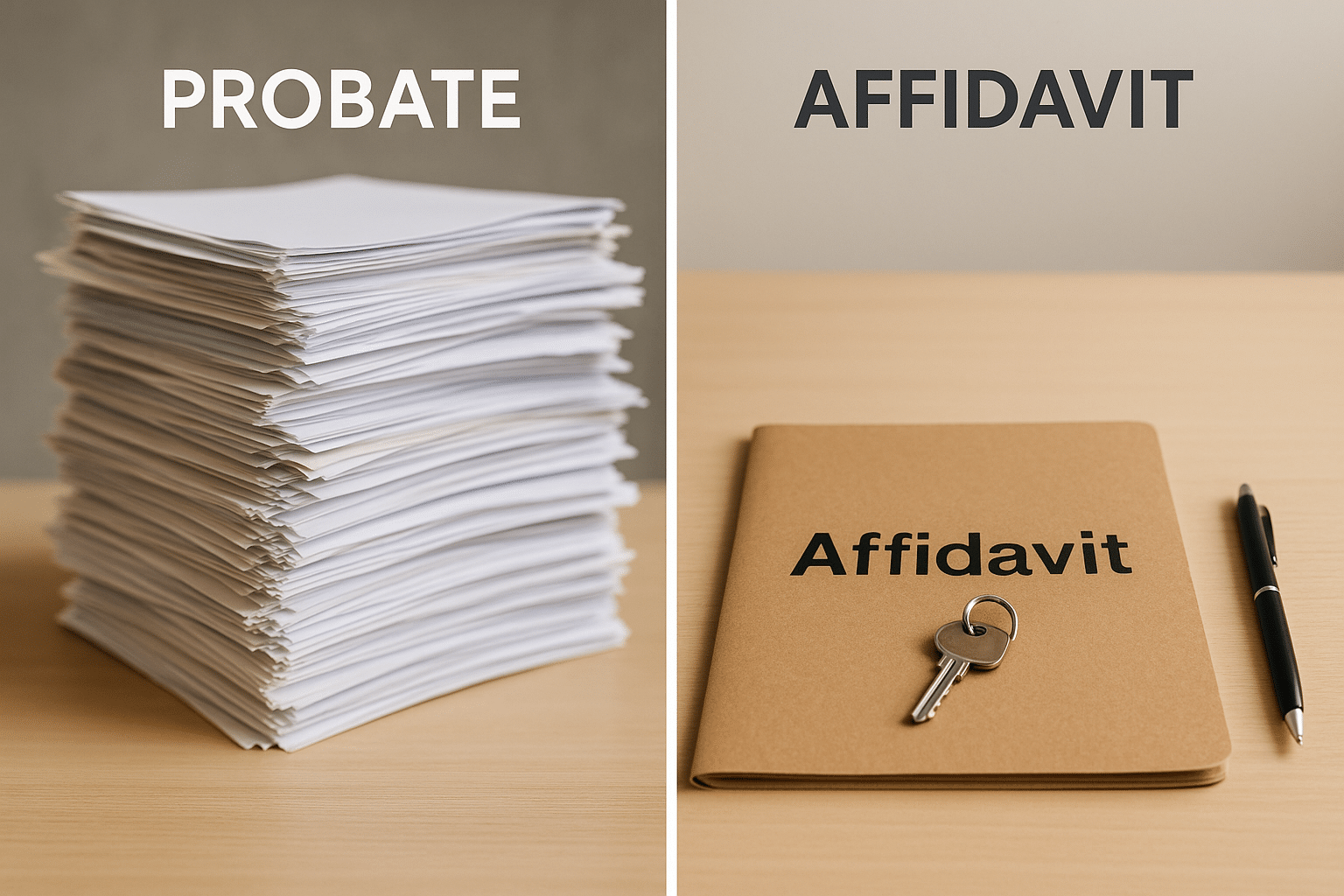At Exactly, we often meet families navigating probate who feel stuck waiting for months, or even years, before they can sell an inherited house. The good news? In Ohio, there may be a faster option for many families: the Affidavit of Inherited Property. (Ohio Revised Code §2113.61)
We sat down with Attorney Jeanette Mullett-Meisel, a probate and estate attorney in Wadsworth, to break down what it is, how it differs from transferring a property in probate, and when it’s the right fit.
What Is the Affidavit of Inherited Property?
“The affidavit is filed with the recorder’s office, not the probate court,” Jeanette explains. “It transfers title of a decedent’s property to heirs by operation of real estate law, so they can gain title to the property and sell the property without probate.”
It only applies to real estate—not bank accounts, retirement funds, or personal property—but it can save families enormous time and money.
Why Use The Affidavit of Inherited Property Instead of Probate?
The affidavit isn’t just faster — it often reduces complexity, stress, and cost for families.
- Less paperwork. Probate involves petitions, inventories, accountings, and ongoing court supervision. The affidavit is a single document filed with the recorder’s office.
- Flexibility. Because it runs through real estate law, the affidavit can usually be completed at the same time a property is prepared for sale, making it easier to line up clean-outs, maintenance, and listing plans.
- Faster access to proceeds. “Instead of waiting more than a year for probate to wrap up, families can gain title to the property and usually sell within a few months,” Jeanette explains. That means funds are available sooner for distribution to heirs or expenses like assisted living transitions.
Jeanette sums it up this way:
“If the heirs are aligned and the estate qualifies, the affidavit can be a better option. It’s quicker, it’s simpler, and it spares families the drawn-out court process.”
When It Works and When It Doesn’t
When it works:
- The heirs are clear
- The main asset in the estate is real property.
- The real estate is not needed to pay debts of the estate (like the funeral bill or expenses of the decedent’s last illness).
- There’s no will, or no will that contradicts the transfer.
When it doesn’t work:
- If heirs are at odds, or if there’s a complicated beneficiary structure—like grandchildren inheriting ‘by representation’
- A will that directs property differently can also block its use.
Jeanette points to a real-life challenge:
“I had a local estate with 11 heirs. Use of the affidavit in this type of estate makes all beneficiaries co-owners of the property, creating a complicated title and requiring unanimous consent to sell. This often leads to delays, disputes, and practical difficulties that outweigh the simplicity of the affidavit.”
The Reality Families Face
Many inherited homes come with hurdles: hoarded belongings, multiple properties spread across counties, or even vacant houses that need winterization and lawn care. Jeanette notes, “I’ve seen hoarded estates where the clean-out costs range from $2,500 to $15,000. Families often don’t have liquidity.”
Exactly helps by coordinating cleanouts, securing properties, and using our Offerin platform to keep heirs, attorneys, and fiduciaries on the same page.
Ohio Affidavit of Inherited Property Checklist
Could this process work for your family?
- The estate includes real property (house, land).
- There’s no will that conflicts with heirs inheriting by law.
- All heirs are cooperative and aligned.
- The heirs are direct children of the decedent, or a surviving spouse is present.
- You want a faster, simpler, more affordable option than probate.
If you checked most of these boxes, the affidavit might be a fit.
About Jeanette Mullett-Meisel
 Jeanette Mullett-Meisel is a Wadsworth-based probate and estate attorney focused on estate planning, probate administration, and asset protection. She brings nearly two decades of experience as a psychologist into her law practice, approaching each family’s case with both expertise and empathy.
Jeanette Mullett-Meisel is a Wadsworth-based probate and estate attorney focused on estate planning, probate administration, and asset protection. She brings nearly two decades of experience as a psychologist into her law practice, approaching each family’s case with both expertise and empathy.
Visit Jeanette’s website here (https://ohioheritagelaw.com) to learn more.
Ready to Explore Your Options?
Let’s analyze your specific situation and build a winning strategy.







